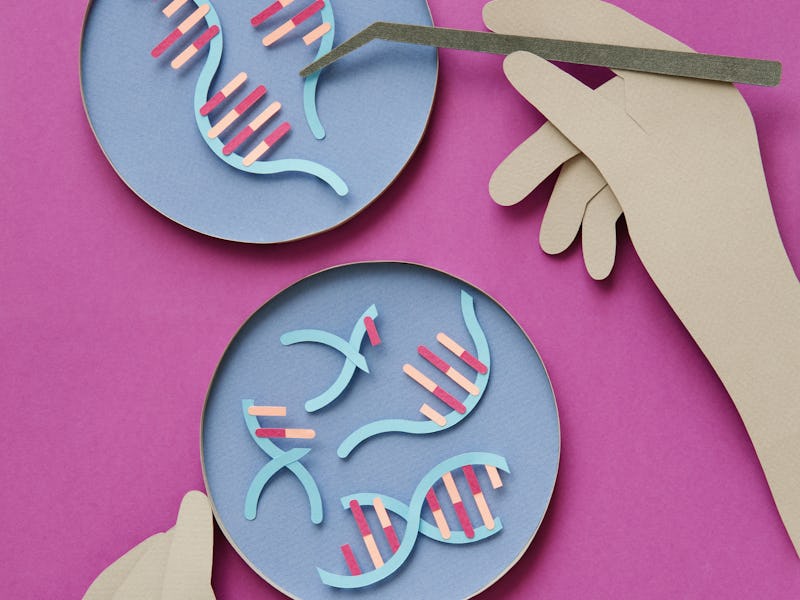The First CRISPR Gene Therapy Was Finally Approved In The US — Here’s How It Works
Casgevy is the world’s first gene-editing therapy for sickle cell anemia and beta thalassemia.

In the ever-evolving realm of modern medicine, a once-distant dream to conquer disease through genetics has now inched closer to reality. Last Friday, the U.S. Food and Drug Administration approved exa-cel, also known by its brand name Casgevy, the world’s first gene-editing therapy for sickle cell anemia for people aged 12 and over. The decision comes just under a month after the drug’s approval in the UK, where it was approved for both sickle cell anemia and beta thalassemia.
Both conditions are long-term blood disorders with no cures outside of a bone marrow transplant. Sickle cell anemia, which affects around 20 million people worldwide and most of Black or African descent, is caused by inheriting a defective hemoglobin (the protein that binds to oxygen in red blood cells) gene from both parents. Beta thalassemia is also caused by mutated hemoglobin genes; around 300 million people worldwide carry the genetic risk, and over a million have the disease.
Casgevy corrects the mutated hemoglobin gene using CRISPR, an easy-to-use gene editing tool that was first discovered in bacteria. The tool works by using a specialized protein called Cas9, to cut DNA at a specific location, allowing clinicians to remove, add, or alter specific gene sequences.
Blood-producing stem cells are removed from the bone marrow of an individual with either sickle cell anemia or beta thalassemia. Casegevy targets a gene called BCL11A, which contains instructions for a type of hemoglobin only made in fetuses. This gene is silenced shortly after birth, but Casgevy edits it to turn it back on. The blood-producing stem cells now produce a functional hemoglobin that works just fine for oxygen transport. These cells are then infused back into the person.
In a clinical trial, the one-time gene therapy relieved chronic pain in many participants with sickle cell — for some even up to 12 months after treatment — or the need for blood transfusion in those with beta thalassemia. The clinical trials remain ongoing as regulators and Casgevy’s developers monitor for any safety issues. So far, the only side effects reported have been nausea, fatigue, and an increased risk of infection.
The FDA is still weighing on Casgevy’s use for treating beta-thalassemia and is expected to come to a decision in March 2024. Its approval comes after another win for gene therapy, where a slightly different CRISPR tool was used to slash cholesterol levels in people with familial hypercholesterolemia.
In the same announcement, the FDA approved another more traditional gene therapy for sickle cell disease. Called lovo-cel, or the brand name Lyfgenia, it uses a disabled virus to introduce genetic modifications so blood-producing stem cells can make normal, healthy hemoglobin.
Gene editing may be basking in the spotlight, but its recent success isn’t a slam dunk. CRISPR-based gene editing still carries many risks, the main one being it can introduce potentially harmful, life-threatening mutations such as those that cause cancer. For instance, Lyfgenia comes with a black warning about the possibility of treatment recipients later developing blood cancer and should be monitored for that risk.
There’s also the risk of off-target effects where the gene-editing tool interacts with genes it’s not supposed to, out of mistaking one gene sequence for another. Other gene editing tools, like base editing used to treat high cholesterol, may be a safer route since those involve making small changes to DNA rather than entire genes like CRISPR and can be more precise. Trials on using base editing with sickle cell anemia have only been tested in mice so far.
Another deciding factor of how truly helpful Casgevy will be is cost. Gene therapies are prohibitively expensive, on average between $1 million to $2 million a dose, according to a 2017 analysis by The Institute for Clinical and Economic Review. While Vertex Pharmaceuticals hasn’t given a price point for Casgevy yet, it stands to reason it won’t be readily available to all individuals dealing with sickle cell anemia or beta thalassemia, especially those in low- and middle-income countries lacking the technology to implement this gene therapy.
Despite the daunting journey ahead in ensuring CRISPR's safety and accessibility — or exploring safer alternatives — Casgevy’s approval for previously thought incurable diseases marks a blueprint for future gene therapies, making the possibility of genetic intervention a tangible reality rather than a thing of science fiction.
This article was originally published on